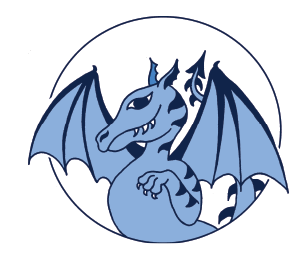Communicating Student Learning
November 2019
Dear Mackenzie families:
Re: CSL – Communicating Student Learning
CSL is a new acronym that you are going to be hearing a lot! Vancouver public schools, along with schools throughout British Columbia, are moving from a model of ‘reporting to parents’ on a regular and pre-determined schedule to ‘communicating student learning with parents’ on an on-going basis throughout the school year. The VSB has been piloting and moving towards the CSL reporting format over the past two years.
This year, Mackenzie teachers have the choice to participate in three different reporting practices. All include two written reports, one at the end of January and one at the end of June, with three other points of communication on various subjects throughout the year. It is the teacher’s choice to participate in one of the following formats, all of which include paper copies home:
* The traditional report card with letter grades
* CSL Template – no letter grades (transitional version)
* CSL Tool – no letter grades
Whichever format your child’s teacher chooses, both reports will be the same for this school year. Be prepared, if you have children in multiple classes, each of their reports may look different!
Next year, 2020-2021, all VSB schools will be using the CSL Tool. The CSL Template and Tool are focused on strength-based reporting. Below is a summary of the shift from past practice with its focus on letter grades to strength-based reporting that coincides with the changed and updated BC curriculum.
The written reports will include descriptive comments and a summary of student progress in relation to the learning standards from the BC curriculum.
- A shift from primarily focussing on summative assessment to primarily focussing on formative assessment
- 5 required communications with parents within a school year:
- Student Self-Assessment of the Core Competencies with the written summative report in June
These changes in communicating with parents are part of the redesigned BC curriculum. Based on current assessment research, ongoing personal feedback which is embedded in daily instruction, along with examples of student work are more beneficial in supporting student learning than simply reporting on student results. Thus, the shift in practice. The communication of student learning to parents is based on clear standards and expectations and is intended to make learning visible. Students are encouraged to think of the questions:
- Where am I now?
- Where am I going?
- What do I need to do to get there?
* a minimum of three ongoing communications of student learning throughout the school year
- one written progress report at the end of January
- one written summative report at the end of June
A. Ongoing Communication with Parents (a minimum of three times a year, timing at the teacher’s discretion)
- based on authentic evidence of student learning from a variety of sources (examples of student work, photographs, audio, video, portfolios)
- based on clear standards and expectations with the intention of making learning visible
- can occur in different ways (three-way conferences, electronic portfolio reviews, parent-teacher meetings, reflections on student work, Fresh Grade or other on-line platforms, telephone conversations, interim written reports)
* Written Progress Reports – end of January and end of June
- a written progress report will be sent to parents by the end of January. This report will indicate where the child is in relation to the age/grade expectations at the mid-year point
- a written summative report will be sent to parents by the end of June. This report will indicate where the child is in relation to the age/grade expectations and a student self-assessment of the Core Competencies (Communication, Thinking and Personal and Social)
- where applicable, a summary of the progress toward the goals in the child’s Individual Education Plan (IEP) will be provided
- letter grades will not be included on the written reports but will be provided to parents on request
All 5 communications with parents can include:
- descriptive information about the child’s learning
- the learning goals the child is working towards
- ways to further support the child’s learning at school and at home
- the child’s contributions to the classroom, school and community
- how the child interacts with others
* began June 2017
By participating in this process, students are provided with meaningful information about their learning so that they can monitor their progress towards the learning goals they have set. Parents are involved as partners in a dialogue about their child’s progress and the best ways to support and improve learning. We look forward to working with you as we continue to focus on your child’s learning.

